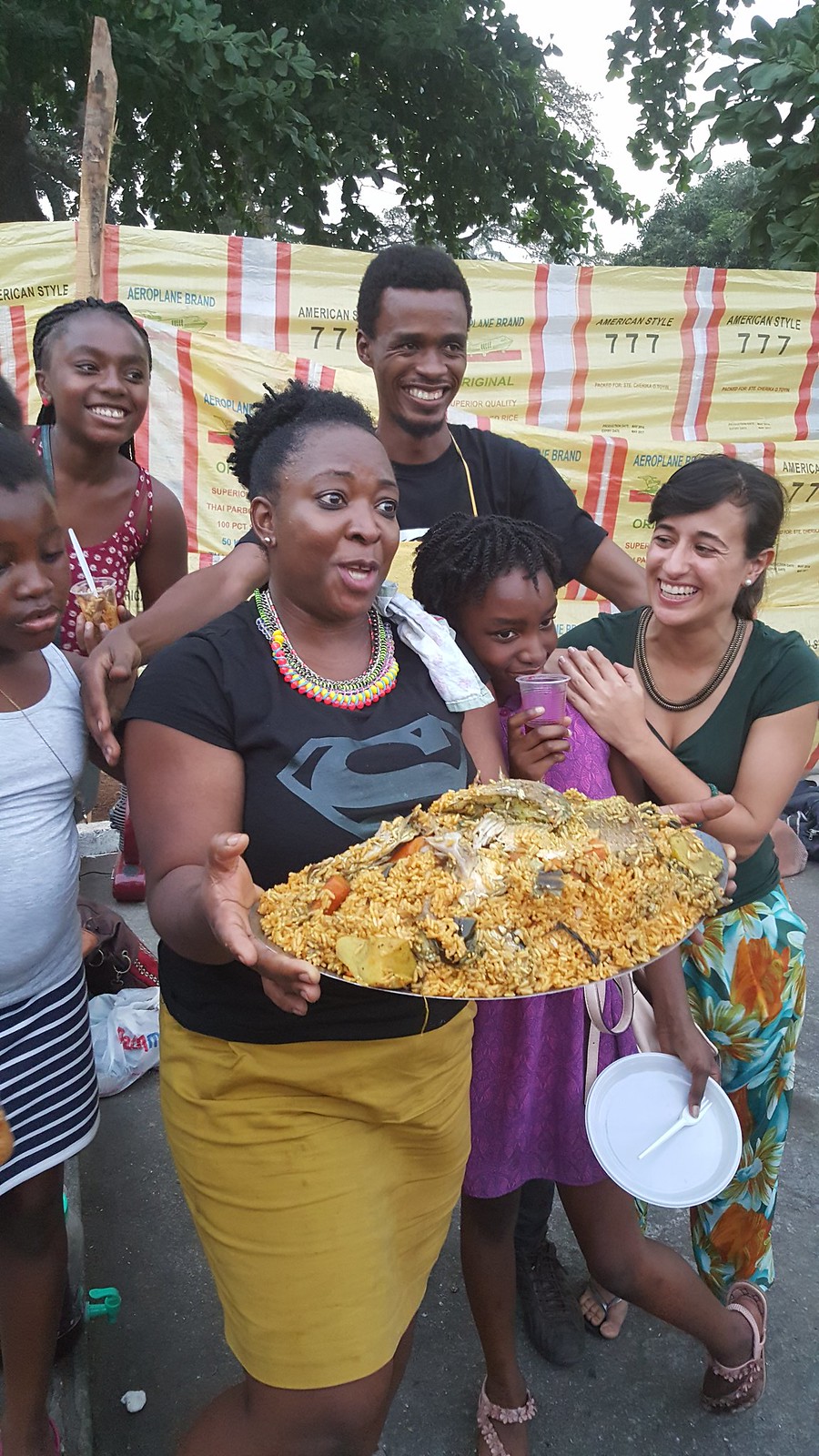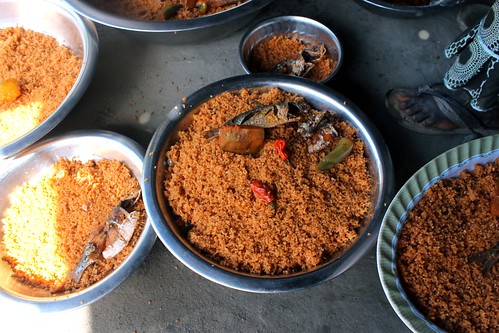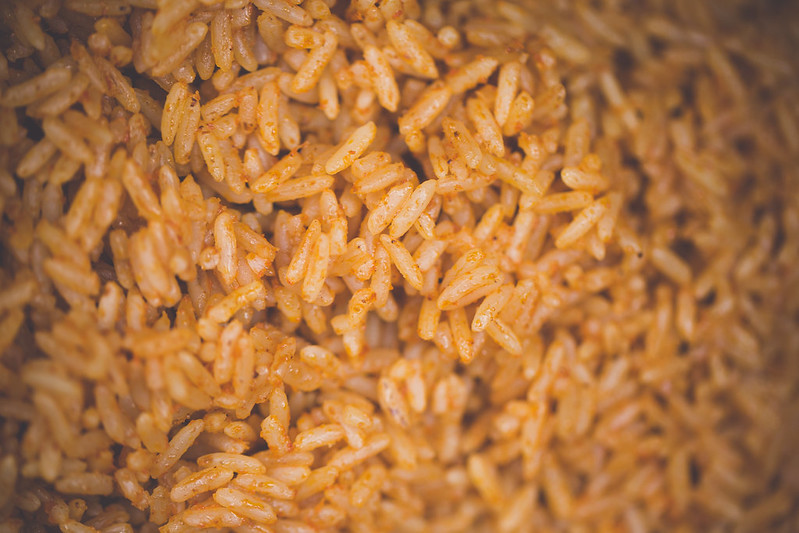Interesting, I find – Jollof goes by only four names across the coast of West Africa, three of which are repeated in use – Jollof, Riz au Gras (aka Riz Gras), Thieboudienne; one – Benachin is used in only one country – Gambia.
I looked at the names in 16 of the 18 countries, excluding the islands of Saint Helen and Sao Tome & Principe.
The conclusions I’ve reached on the names/ reference numbers is based on Google search.
The first version had the name in Niger as Riz Au Graz,Riz Gras for short and a Nigerien corrected me so I’ve had to do an update. In summary, there are 7 countries that call their spiced red rice dish Riz Au Gras, Jollof, 6 where it goes by Jollof, 2 where it’s called Thieboudienne and 1 ‘Benachin’.
I’m not there yet but I’m intrigued by the difference and the specificity of the names. Specificity is my word of the week :). So why did certain countries stick with Jollof for a name? If the Djula travelling salesmen were the reason, are there trade routes/ occupations to map? What can the naming convention tell us about what happened, when and where. What does this tell us about the foodways?
I’m not ready for this investigation right now so I’m making notes to come back to it…sometime soon. Anyway, if you have information on names/ more names/ the real names/ please share – I’d be happy to incorporate them.
Riz Au Gras
Riz au Gras translates (from French) to Fat rice, referring to short-grain rice – the popular choice for what we call ‘Jollof’ in most of Francophone Africa. Variations exist with whole vegetables – similar in style to Thieboudienne of Senegal – like carrots and okro.

Jollof
Names in countries like Nigeria and Ghana – the fiercest rivals but also in Niger, Sierra Leone, Liberia and Guinea Bissau. Though the rice used differs from country to country – broken, Thai Jasmine, Long grain in Senegal, Ghana and Nigeria respectively, the principal of the spiced red rice remains untouched.
All the countries that call their rice Jollof are on the coast. Does this say something about trade routes? Dispersion patterns?
Thiéboudienne
This is from the birthplace of Jollof – the national dish. Orange rice, piled high with seafood and vegetables – from potatoes to cassava, pumpkin and plantains.

Benachin: The Gambia
Bena – one and chin – pot in Wolof. Direct translation, Benachin – one pot – the essence of jollof rice 🙂

So, the names by which Jollof Rice goes along the coast of West Africa.
Did I miss something? Can you share anything to make this better? I await you 🙂 xxx


Leave a Reply